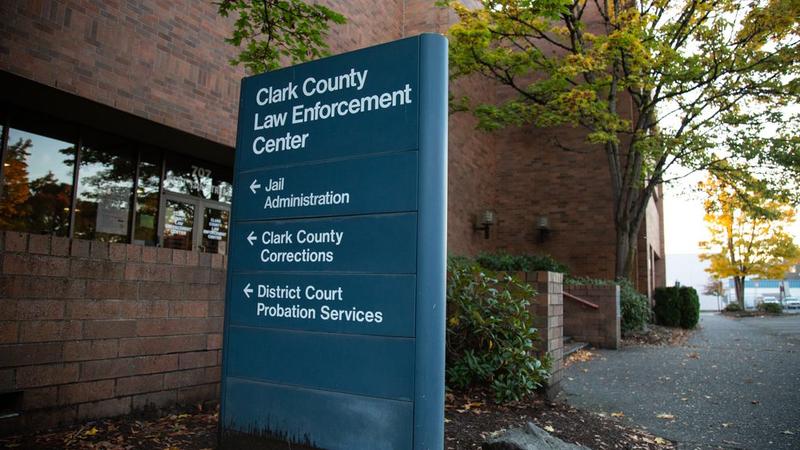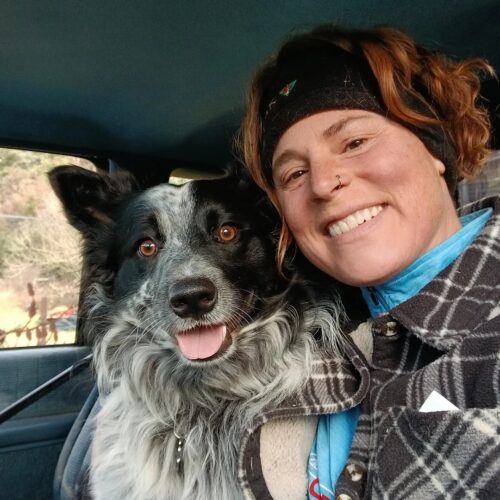
Stuck In Jail, Waiting For Psych Bed: How COVID Made An Old Problem Worse In Washington
READ ON
BY TROY BRYNELSON & AUSTIN JENKINS
Bill Ward didn’t want to get out of bed. About the only reason he found to lift himself up was to go to his computer and check the online roster of a county jail more than 600 miles away.
The 78-year-old’s grandson had been sitting in the same Clark County Jail cell for more than three months. The long wait left Ward perplexed.
“I just don’t understand how it can happen,” Ward said.
Like many others, Ward’s grandson is jammed in Washington state’s criminal justice system for people who cannot assist in their own defense. His stint began Feb. 22 after he allegedly broke into an apartment building, while carrying stolen mail, and then punched a staffer who tried to get him to leave.
Trevor, 26, isn’t fit to stand trial at the moment. Due to his psychiatric condition, OPB and the Northwest News Network are not using Trevor’s real name, which differs from his grandfather’s.
In April, a Clark County judge ordered Trevor to spend 45 days at Western State Hospital in Pierce County. Now he, along with roughly 100 others currently in jails, must wait for an open bed.
While Washington’s system has been strained for years – and recently led to a landmark lawsuit in the state – state officials and disability rights advocates say it effectively ground to a halt during the COVID-19 pandemic. Delays grew and left many people stuck in need of treatment.
“We experienced a lot of slowdowns in hospital admissions,” said Christopher Carney, one of the attorneys who sued the Washington Department of Social and Health Services in 2015 over delays in getting mentally ill individuals out of jails and into treatment.
“There were stops on admissions… for fairly long periods of time,” Carney said. “And that’s created really significant backlogs.”
While Carney said the backlog is shortening from its worst stretches of the pandemic, it remains bottlenecked. “We’re still at very long, unconstitutional delays in getting people admitted to the hospital,” he said.
Ward, from his home in Santa Rosa, Calif., broke down in tears discussing his grandson. He said Trevor ran away from home and came to live with him as a teenager. Ward said he quickly saw his grandson’s troubles.
“I worked for nearly eight years, you know, trying to help him achieve some kind of an adult life,” Ward said. “But, at the end, his mind began unraveling.”
A heightened sense of paranoia had been clear from early days, Ward said, like when his grandson would refuse to hand in completed homework because he didn’t trust his teachers. But, in his late teens, it seemed to metastasize.
At one point, Ward said, Trevor spent 30 days taking pictures of license plates under the delusion he was an undercover FBI agent. He said he communicated regularly with Bill Gates and leaders in Sudan. A forensic psychologist diagnosed him as paranoid bipolar with hallucinations.
Trevor left Santa Rosa in late 2019, Ward said. He arrived in Portland by summer 2020, where he quickly ran afoul of the law. Portland police arrested him for trespassing at an unoccupied Southeast Portland apartment carrying a toy replica pistol.
His current stint in jail began in Vancouver. When police confronted him at the apartment complex where he had allegedly stolen the maintenance key, he told officers his name was Harvey Weinstein and Space Cat, according to court records.
Trevor faced charges of trespassing, fourth-degree assault, and second-degree stolen property – a felony. Jail records show he has remained there. Ward said his grandson barely talks and has not spent a single dollar of the commissary funds Ward put into his account.
At his first court hearing in February, Trevor’s father told the judge via Zoom that they hadn’t talked with his son for more than a year. His father told the judge his son was not fit to stand trial, then told Trevor his family loved him.
Trevor has pleaded not guilty. His attorney, Therese Lavallee called his stay “heartbreaking and wrong.” She said she planned to demand immediate admission into a state hospital at Trevor’s next hearing on June 8, or move for charges to be dropped.
“According to experts, he desperately needs mental health treatment,” Lavallee said. “So the dilemma rears its ugly head… move to have him released in his current state or wait it out.”
In Washington, the criminal justice system is under a court order to quickly evaluate and aid inmates like Trevor who cannot assist in their own defense. In 2014, a coalition of disability rights advocates sued the Washington Department of Social and Health Services over long jail stays for people awaiting treatment that violated a person’s civil rights.
Following a U.S. District Court judge’s order in 2015, if a judge determines a person needs an evaluation, that evaluation must occur within 14 days. If the evaluation finds that person needs treatment – called “competency restoration” – that treatment must occur within seven days.
Despite the state adding new beds, it has struggled with the new demands, state officials and disability rights advocates said. Evaluations often meet the court’s goals, according to data supplied by the state, but problems occur when a person needs a bed for inpatient services. Inpatient services are largely offered at the state’s two psychiatric hospitals. Eastern State Hospital is located in Spokane County.
At the height of the pandemic, according to Dr. Thomas Kinlen, director of Washington’s office of forensic mental health services, wait times for beds rose to “three to four months” while they worked to enact safety protocols.
According to state data, people in need of psychiatric treatment are waiting 45 days on average. Kinlen acknowledged that the state is still falling short.
“Not where we need to be – I recognize that,” he said. When asked what he would tell a family member of someone currently waiting more than a month, he said: “We don’t have a bed. As soon as we have one for them, they’re going to be admitted.”
The pandemic continues to exacerbate a bottleneck for hospital beds, where most treatment occurs, according to disability rights advocates.
Kimberly Mosolf, of Disability Rights Washington, said the organization has resumed speaking with patients in recent months to find treatment has mostly stalled.
“People are mainly just sitting around on the wards. There’s a lot of doing jigsaw puzzles, maybe taking a walk outside, but formal group programming (for treatment) has not been happening,” Mosolf said. “I think it’s just starting to resume.”
On April 22, a Clark County court ordered Trevor into Western State Hospital for inpatient treatment. The court ordered a stay of 45 days once he arrives.
The lengths of stay continue to frustrate Ward. From his perspective, there isn’t enough being done to make room for people like his grandson.
“I don’t know how they’re ever going to get ahead of the ball,” he said.
In a phone interview, he said he grows more frustrated with every day he gets out of bed to check the jail roster. His grandson and the cell number remain unchanged.
Ward said he could bail Trevor out, but, with no ties to Southwest Washington, he worried he would simply be sending him back out onto unfamiliar streets. He feared he wouldn’t survive. He said he wondered if he might file a civil rights lawsuit as a last resort.
He has shopped around for plane tickets to Portland, with the pandemic in the back of his mind. A stroke has also made his own mobility difficult. He said he wondered if he could make it to the next court date, or visit when his grandson is admitted to a state hospital.
“It is just beyond despair,” he said. “What I want from him more than anything in this world is for him to have some kind of life and I don’t see it coming at this point in time.”
This story is a collaboration between Oregon Public Broadcasting and the public media Northwest News Network.
Related Stories:

Voucher program provides free counseling for farmers
Washington State University offers a Farm Stress Counseling Voucher program for farmers. Roni Ryan, pictured, is one of the farmers who has received counseling from the program. (Courtesy: Roni Ryan)

Bills to allow some, regulated access to psilocybin unlikely to move forward
Washington state lawmakers still can’t pass bills to allow for some legal access to psychedelics.
With Feb. 21 as the cutoff for bills to move out of policy committees, two pieces of legislation that would have allowed regulated and supervised access to psilocybin for adults won’t be moving forward — Senate Bill 5201 and House Bill 1433. The bills faced opposition from state psychiatric and medical groups, as well as advocates for psychedelics.

‘It’s a crisis’: How the shortage of counselors is affecting the rural Northwest
In small towns, such as Walla Walla, Washington, behavioral health care providers can be hard to come by. (Credit: Susan Shain / NWPB) watch Listen (Runtime 3:49) Read By Rachel















